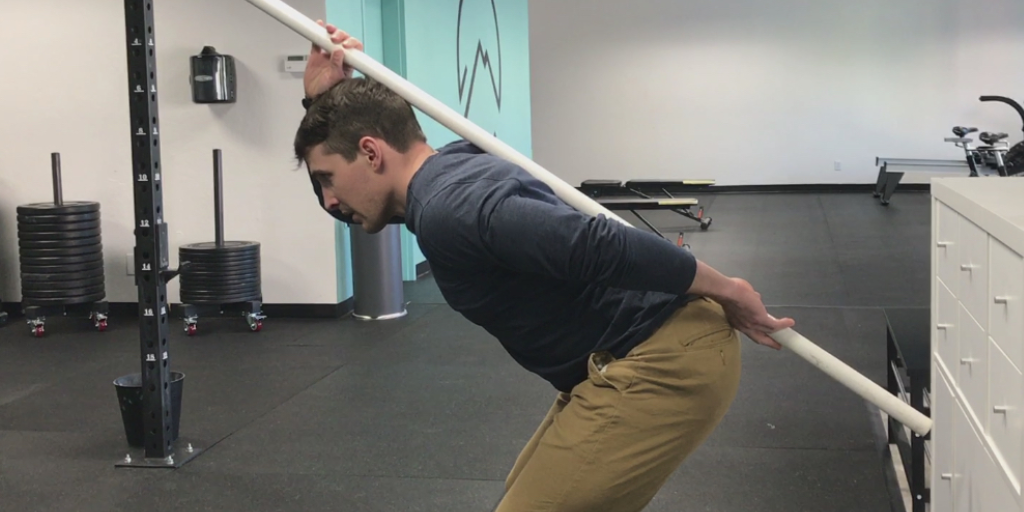
G.I Issues: Athlete Edition
Warning! We will be dropping the D bomb in this article (diarrhea) and talking about very normal bodily functions. If you are squeamish… deal with it, especially if you are having gastrointestinal (GI) issues during exercise.
If you are an athlete, then I’m sure that you have experienced some sort of discomfort with your gut during training. This is the most common complaint that we get from our athletes. There are horror stories of jumping behind the nearest tree and using your favorite sock to manage the aftermath. Or, going out for a long Sunday ride and battling your breakfast so you don’t have it for round two. Unfortunately, many of us have stories of our own and many athletes assume this is part of their sport. Because your hardcore, right?

Self-treatment techniques for lower back pain
One of the most common questions that I get goes something like this, “Hey, I tweaked my lower back the other day. It’s really hurting me. What stretches should I do?”
This can be a tricky question to answer, because so many things in injury rehabilitation depend: depend on your unique history (Have you had lower back pain previously?), the severity of your injury (Does hurt a little? A lot? Are there any red flags, such as muscle weakness, that need to be promptly investigated further?), your activities/hobbies (Are you a cyclist? Runner? Yogi? Not very active?), your specific anatomy and biomechanical factors (How is your muscle strength, flexibility and joint range of motion?), and so much more.
However, there are usually a few safe ways to attempt to relieve lower back pain on your own, and I often send out the general recommendations below as a response when I get asked about back pain.

Low Intensity Training and the Maximal Aerobic Function Test: Measuring Aerobic Fitness and Nervous System Function
Testing strength standards is fairly straightforward: can you lift a certain weight for a certain number of reps, or not?
However, measuring cardiovascular and aerobic function can be more complex. Of course, there's a straightforward race or time trial -- how fast can you go over a certain distance -- but this does not consider different cardiovascular energy systems, or the role of mental fortitude, for example.
Even more complex is measuring nervous system function. Do you live and work primarily in a sympathetic state (more hype, more stress, faster-paced sprint efforts), or a parasympathetic state (resting and digesting, slower aerobic efforts)? This is important to consider as it can be a window in both the effects of our training, and how we are coping with all of the other stresses present in our lives.
Performance Training Standards: How we progress our athletes over time
Central to our Performance Training program and thought process is progression: How to we make sure that you get from A to B? How to we develop an athlete over time to ensure that they are well-rounded, resilient, durable, and capable?
It's a tricky question, and many people have experienced problems from a lack of proper progression. These can include:
Improvements early in a program followed by a plateau.
Getting injured soon after started a program.
Excelling in one specific area or domain with little carryover or ability in others.
Fizzling out of a program because you didn't see "where it was going."
While we want to encourage exercise and physical activity in all of its shapes and forms -- our healthcare system would have much fewer issues if more people were more active -- at EVOLVE, we want to be more nuanced, and not simply exercise for the sake of exercise. A training program has a progression model in mind. It's easy to write a hard workout, but more challenging to adequately and appropriately challenge an athlete over time.

Introducing EVOLVE Performance Training
“Do what you love, for life.”
Since the beginning, our goal at EVOLVE Flagstaff is to help you do what you love, for life. We want to help you feel and look great, to overcome injuries, prevent chronic disease, and live your life to the fullest.
To better fulfill that mission, we are incredibly excited to announce that EVOLVE Flagstaff will be expanding to a larger space in downtown Flagstaff. We’ll be moving from our current 350 square foot office to a 2,400 square foot clinic and training space. This move will provide the following dedicated private offices for our Registered Dietitian and Physical Therapist, allowing for more available treatment times and less distraction. We’ll also have a state of the art strength and conditioning equipment with ample space to train.
What’s most exciting about this move is that we will launching a Performance Training Program that we’ve beta tested over the past year to address all of the most common problems we see people encountering while pursuing an active lifestyle.

Travel Nutrition Priorities
We love traveling at EVOLVE, whether it's a quick weekend in Scout the Van (see figure 1), or jet setting to far off lands.
Exploring new places, cultures, and food is great, but we know that it is easy to feel like travel throws a wrench in all of your awesome, healthy nutrition habits. So, let’s take a moment to break down our nutrition strategies on the road or in the air.
